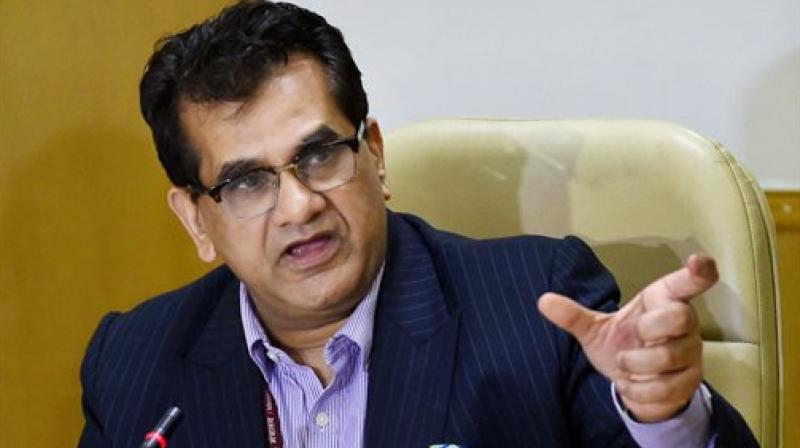Govt keen to bring India among top 25 countries in ease of business: Kant

New Delhi: NITI Aayog CEO Amitabh Kant on Saturday said that Prime Minister Narendra Modi is keen that India is in the top 50 countries in the ease of doing business in the next two years and governments' next target is to bring the country among the first 25 in next five years.
Launching the report published by Pahle India Foundation on the ease of doing business here, he said it is important that India grows rapidly as it is going through demographic transition which rarely happens in history.
"We need to lift a vast segment of the population above the poverty line. There is a need to improve the ease of doing business. We have to do away with the rules and regulation brought over the years. Our government has already scrapped 1300 laws," he said.
Kant said digitisation is imperative for the growth of the country and the government has tried to digitise every sector of the economy in the past five years.
He said the government has tried to cut away human intervention and that is a reason why India was able to rise in ease of doing business rankings.
India's rank in the World Bank's Ease of Doing Business 2019 survey climbed 23 places to 77.
"Prime Minister Narendra Modi wants India among top 50 on ease of doing business index in the next two years. The governments' next target is to bring India in top 25 in next five years," Kant said.
Pahle India Foundation's report looks at sugar, alco-bev and tourism industries as an integrated value chain and suggests a sectoral approach as the next step in the ease of doing business evaluation framework."
The report - An Integrated Value Chain Approach to Ease of Doing Business: A Case Study of Sugar, Alco-Bev, and Tourism - states that three industry sectors alone provided employment to nearly 80 million people in India in 2018.
It recommends an integrated sectoral approach to ease of doing business or more quantifiable gains in state GDP through the case study of three industries, which show how a small reform in one of these sectors can create cumulative economic impact across the value chain and for the state because of their inter-linkages.

